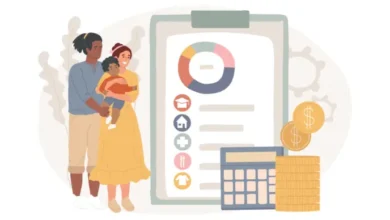Dealing with Spire Debt Collection: A Consumer’s Guide

If Spire Recovery Solutions has recently appeared on your credit report, you might be concerned about the impact it can have on your credit score. You are not alone, as many people find the appearance of a debt collection agency like Spire a stressful experience.
The presence of such collections can considerably affect your financial stability and your future lending prospects. This guide will walk you through everything you need to know about dealing with Spire, from understanding their operations and your rights to managing credit score impacts.
Discover how to effectively negotiate, communicate, and potentially remove inaccuracies, while ensuring you understand the relevant legal protections. Read on to empower yourself with the right knowledge and strategies to handle debt collection confidently.
Understanding Spire Recovery Solutions
Spire Recovery Solutions operates as a debt collection agency that helps creditors recover outstanding debts from both commercial entities and individual consumers. Founded in 2014 by U.S. military veterans Jacob and Joseph Torriere, the company upholds principles of discipline and integrity in its operations.
They serve as intermediaries between creditors and consumers, aiding in the resolution of past-due accounts. Spire Recovery Solutions works with an array of creditors, including financial institutions and healthcare providers, to ensure debts are managed effectively.
Additionally, Spire Recovery Solutions provides educational and financial tools for consumers to better manage their personal finances. Adhering to industry regulations and maintaining transparency through associations like ACA International and RMAI Certifications, the company ensures that operations are compliant and ethical.
Debt Validation and Your Rights
Dealing with debt collectors can be daunting, but understanding the importance of a Debt Validation Letter can empower you. This crucial step is not just a formality; it ensures that the debt in question is genuinely yours.
Under the Fair Debt Collection Practices Act (FDCPA), the debt collector must provide validation of your debt within five days of first contacting you. This includes detailing the creditor’s name and the amount owed.
One of the key tips shared in online communities, such as a discussion on Reddit, is to never make payments before you have received proper validation of the debt.
This is a right given to you under the FDCPA, allowing you to dispute any debt that appears questionable. It’s advisable to send these letters via certified mail, ensuring you have a record of all communications with the collector.
This proactive approach can prevent future hassles.
Besides the FDCPA, the Fair Credit Reporting Act (FCRA) also plays a significant role. It protects you from inaccuracies that may appear on your credit report.
If you dispute a debt and prove it to be incorrect or unverifiable, the credit bureau should remove it from your credit history. This highlights the importance of verifying debts for accuracy and guarding your credit status.
Once you send the Debt Validation Letter, the debt collector must stop all communication with you until they provide sufficient proof of the debt. Should you dispute the debt within 30 days, the collector must halt all collection efforts until they validate the debt.
This rule prevents you from being wronged by collection actions for debts that may not belong to you or could be improperly calculated.
For drafting a robust dispute letter, leveraging tools and templates from consumer protection organizations like the Consumer Financial Protection Bureau (CFPB) can be incredibly useful.
Their resources are designed to ensure that debt collectors follow the legal frameworks such as the FDCPA, helping you craft a dispute letter that effectively asserts your rights.
Impact on Credit Score
When Spire Recovery Solutions pops up on your radar, it’s likely due to an outstanding debt they are attempting to collect, which can already have a damaging presence on your credit report.
Collections indicate a high credit risk to lenders, possibly leading to higher interest rates or loan denials. This is primarily because these accounts suggest you might have challenges managing your debt, a red flag for anyone considering lending you money.
Collections can persist on your credit report for a significant duration. Such accounts can linger for up to seven years from the initial delinquency date, making it difficult to obtain loans or credit at favorable terms throughout this period.
Even if you pay the debt, the collection account can remain, along with any associated negative bits like late payments or collection notices.
The severity of a collection account’s impact on your credit score can vary with different credit scoring models. Newer scoring models might be somewhat lenient towards paid collections compared to older ones. However, the mere presence of a collection account is always detrimental.
Your payment history, which forms a significant portion of your FICO score, takes a hit when such entries appear, denoting potential issues with debt management.
Moreover, the recency and amount of the debt play critical roles. Collections that are more recent or involve larger amounts typically hammer your score harder.
It’s also vital to note that while age of the debt is significant, and although a collection can remain for up to seven years, the statute of limitations for collecting the debt varies by state.
Paying or settling the debt doesn’t reset the clock on the statute of limitations, yet it might inform how the collection is listed, like ‘settled’ instead of ‘paid’.
Financial implications of a collection account reach beyond credit scores alone. These accounts can affect your ability to rent, secure employment, or even open an account with utility providers, who might refer to your credit report during their approval processes.
Therefore, prompt action on resolving these debts isn’t just about lending; it’s about broader financial health and stability.
Negotiating Settlements with Spire
Once the debt has been validated, you might find negotiating a settlement beneficial. It’s important to recognize that while settling a debt can offer relief, it doesn’t automatically erase the negative item from your credit report.
Nevertheless, there are steps you can take to manage its impact. Begin by analyzing your financial situation. Calculate a realistic budget to determine what you can afford in terms of monthly payments without affecting essential expenses.
This preparation will be crucial when you discuss repayment terms with Spire Recovery Solutions.
Always ensure that any agreement reached is documented in writing before you make any payments. Additionally, consider consulting with a credit counselor or attorney, as they can offer valuable advice and support throughout this process.
Exploring a lump-sum settlement offer might also be an option. Start with an offer around 60% of the total owed amount and expect that there might be some negotiation back and forth. Throughout this process, clear and assertive communication will be key.
You could also propose a ‘pay for delete’ agreement, where the negative mark is removed from your credit report upon payment, but remember to get any such arrangement clearly documented.
For assistance, online tools like SoloSettle from SoloSuit can help facilitate negotiations with debt collectors by offering templates and guidance. Consulting a legal rights attorney can also be advantageous. They not only protect your rights but may also help negotiate terms to reduce what you owe.
Engaging in such services can help navigate the complexities of debt negotiations effectively. For more insights, check out detailed discussions on debt settlement available on [Reddit](https://www.reddit.com/r/PersonalFinance/comments/sample_thread/).
Removing Spire from Your Credit Report
Understanding how to remove Spire Recovery Solutions from your credit report can be a crucial step in improving your financial health, especially if the information listed is inaccurate. Credit reports are not immune to errors, and regular checks can be a game-changer.
First, access your credit report from the three main credit bureaus: Experian, TransUnion, and Equifax. Scrutinize each Spire Recovery Solutions entry for any inconsistencies, whether it’s in dates, amounts, or other account details.
Spotting these discrepancies can provide the basis for a formal dispute.
Gather all relevant documents, including payment records and communication logs, to dispute inaccuracies in debt information.
Next Steps: Verifying and Disputing
Reach out to Spire Recovery Solutions and the credit bureaus concurrently. Draft a verification letter to Spire, asking them to prove the debt is valid. If Spire cannot produce the necessary evidence, they might need to remove the entry.
Simultaneously, send a dispute letter to the credit bureaus, arming yourself with the evidence you’ve collected.
It’s beneficial to leverage Spire’s openness to disputes via verbal, electronic, or mail communications. Documenting these exchanges meticulously will help smooth any hurdles during the resolution process.
Community Insights
There are numerous community discussions, such as on Reddit, where users share strategies that have successfully led to dispute successes and amendments in credit reports.
The Key: Persistence
Maintain persistence and follow up on your disputes to ensure the necessary changes are reflected on your credit report. Staying organized and responding promptly to any inquiries will secure your progress in this challenging process.
Managing Communication with Spire Recovery
Repeated calls from debt collectors like Spire Recovery Solutions can be distressing, but knowing how to manage these interactions can make all the difference.
Understanding Your Rights
The Fair Debt Collection Practices Act (FDCPA) safeguards consumers against abuse, harassment, and unfair practices by debt collectors. You are protected from persistent calls intended to annoy or harass.
This will be invaluable if you decide to lodge a complaint or pursue legal action.
Using Cease and Desist Letters
If the calls from Spire become overwhelming, consider sending a cease and desist letter. While this will stop further contact, it doesn’t eliminate the debt itself. Be aware of your financial standing and outstanding balances.
Handling Automated Calls
The Telephone Consumer Protection Act (TCPA) protects against unwanted, automated calls. If Spire uses auto-dialers, request that they remove you from their list to prevent further unsolicited calls.
Working with Professionals
If direct communication is too challenging or intimidating, employing professionals like a credit repair company or a debt harassment lawyer makes sense. They can guide you through the necessary legal processes, draft dispute letters, and maintain your rights during negotiations.
Navigating Ethical Standards
Spire Recovery Solutions is a member of associations such as Receivables Management Association International and ACA International, signaling adherence to ethical industry standards. This can be beneficial if ethical misconduct arises, allowing easier negotiation or filing a complaint.
Taking Further Action
Should Spire violate your rights, contact their chief compliance officer at support@spirerecoverysolutions.com directly. For more intricate issues, seeking legal assistance might be the best decision. Knowing and applying your rights is key to managing communication with Spire effectively.
Handling Lawsuits and Garnishments
When it comes to handling potential lawsuits and garnishments related to debt collection from agencies like Spire Recovery Solutions, it’s crucial for consumers to be well-informed about their options and rights.
While it’s uncommon for Spire to directly engage in legal actions, their creditor clients might pursue a lawsuit if debts remain unpaid through standard collection efforts like letters and phone calls.
In such cases, it’s essential to understand the protections afforded by state and federal laws to avoid unwarranted repercussions.
One of the key protections is the Consumer Credit Protection Act (CCPA), a federal law that limits the amount of wages that can be garnished.
According to the CCPA, garnishment cannot exceed 25% of an employee’s disposable earnings per workweek, or the amount by which their disposable earnings exceed 30 times the federal minimum wage, whichever is smaller.
This law generally applies to most types of wage garnishment situations, but does not cover tax levies or child support.
State laws may offer additional safeguards, with some states enacting even stricter regulations. For instance, states like Texas, Pennsylvania, and North Carolina have laws that restrict or completely prohibit wage garnishment for certain debts.
Moreover, some types of income, such as Social Security benefits or retirement funds, might be exempt from garnishment under state law. Therefore, it’s important to be aware of these specifics to fully grasp one’s rights.
In cases of severe financial distress, consumers might consider filing a hardship claim, which could potentially reduce or temporarily suspend garnishment. Similarly, claiming exemptions for necessary expenses—such as rent or utilities—might offer further protection.
It’s advisable for consumers to seek legal counsel if facing a lawsuit or wage garnishment. Legal professionals can help navigate the process, ensuring that consumer rights are fully upheld.
If there are any concerns that rights have been violated during debt collection efforts, consumers are encouraged to contact the chief compliance officer at the debt collecting agency, or reach out to the Consumer Financial Protection Bureau (CFPB) or their state Attorney General’s office for assistance.
These steps can provide guidance and potentially mitigate the harsh impacts of such financial strife.
For more depth on the Consumer Credit Protection Act, check out the specifics here: [Consumer Credit Protection Act](https://www.dol.gov/general/topic/wages/garnishments).
Navigating Debt Collection and Ensuring Financial Stability
To navigate the complexities of debt collection, it is vital to verify and understand your debts thoroughly. Before jumping into any agreements with collection agencies like Spire Debt Collection, take the time to verify the accuracy of the debts you owe.
Start by obtaining your three-bureau credit report for a complete view of your financial obligations. This step is crucial not only for confirming the legitimacy of the debt but also for identifying other financial areas that might need your attention.
Once you have gathered this information, consider consulting with credit repair professionals. These experts can offer you tailored guidance that aligns with your unique financial situation, ensuring that any settlements you make contribute to a broader strategy for maintaining and improving your financial health.
Looking beyond the immediate goal of debt settlement, it’s beneficial to focus on long-term financial stability.
This involves creating a comprehensive financial plan that includes reviewing your current budget, identifying potential areas for reducing expenses, and setting a plan to enhance your credit health over time.
Utilizing resources available through organizations like Spire Recovery Solutions and non-profit credit counseling agencies can significantly aid you in this journey, helping you manage your debt effectively while also equipping you with the strategies needed to sustain financial stability in the future.
Reddit Threads
You can also refer to the following reddit threads in your article.
- https://www.reddit.com/r/Frugal/comments/2cfj6w/just_received_a_call_from_a_collections_agency/ :A redditor shares their experience with debt collection agencies, emphasizing the importance of debt validation under the FDCPA (Fair Debt Collection Practices Act). They mention sending a certified mail for debt validation to ensure the agency has the right to collect the claimed debt. The commenter advises against providing payment without validation. This aligns with the rights given under FDPCA for disputing debts.
- Discussion Highlights:
- It is crucial to send a debt validation letter within 30 days of the first contact with the debt collector.
- Acknowledge the user’s rights under FDCPA to ask for proof of the debt.
- Validation ensures the debt’s legitimacy and that the collector has the right to pursue payment.
- [Link to the thread](https://www.reddit.com/r/Frugal/comments/2cfj6w/just_received_a_call_from_a_collections_agency/)
- https://www.reddit.com/r/CRedit/comments/vy7mds/question_regarding_contacting_a_collection_company/ :A Redditor experiences persistent contact from a collection agency without detailed information upfront and wonders if they should respond or not. Another user suggests it’s possible to send a debt verification letter via certified mail to prompt the collector to identify the original creditor, thus helping to confirm the authenticity of the debt.
- Discussion Highlights:
- Verification helps to confirm any outstanding debt.
- The collection agency should provide complete details once a verification request is made.
- [Link to the thread](https://www.reddit.com/r/CRedit/comments/vy7mds/question_regarding_contacting_a_collection_company/)
- https://www.reddit.com/r/CRedit/comments/1dg00jj/collections/ :A discussion on dealing with Spire Recovery Solutions and other collection agencies, with a focus on the importance of checking for errors on your credit report. Participants suggest checking regularly for any inaccuracies that could provide grounds for removing entries, emphasizing that persistent errors can be contested.
- Discussion Highlights:
- Regular credit report checks help identify inaccuracies.
- Inaccurate entries can be contested for removal, offering a potential solution for clearing one’s report.
- [Link to the thread](https://www.reddit.com/r/CRedit/comments/1dg00jj/collections/)
Research Data
You can also refer to the following research in your article.
1. Research Source : https://www.fool.com/money/research/average-household-debt/
Research Data Points:
- Total household debt in the United States stands at $17.796 trillion as of the second quarter of 2024.
- The average household debt in the United States is $104,215 as of 2023.
- Total credit card debt in the United States hit $1.142 trillion in the second quarter of 2024, with an average credit card balance of $6,501 per cardholder in the third quarter of 2023.
- Total mortgage debt in the United States stands at $12.519 trillion as of the second quarter of 2024, with the average mortgage debt being $244,498 in 2023.
- Total auto loan debt in the United States reached $1.626 trillion in the second quarter of 2024, with the average auto loan debt being $24,035 as of the first quarter of 2024.
2. Research Source : https://www.lendingtree.com/credit-cards/study/credit-card-debt-statistics/
Research Data Points:
- Americans have a total credit card debt of $1.142 trillion in the second quarter of 2024, the highest balance since the New York Fed began tracking in 1999.
- The average credit card debt among cardholders with unpaid balances in the third quarter of 2024 was $7,236, up from $7,130 in the second quarter.
- Connecticut has the highest average credit card debt of any state at $9,323, while Mississippi has the lowest at $4,918.
- Fewer than half (47%) of credit cardholders carried a balance at some point in 2023, down from 50% in 2020.
- The average APR for all credit card accounts accruing interest was 23.37% in the third quarter of 2024, a record high.
3. Research Source : https://www.consumerfinancialserviceslawmonitor.com/2024/11/lawsuit-filed-challenging-cfpbs-advisory-opinion-on-medical-debt/
Research Data Points:
- The CFPB’s advisory opinion on medical debt collection practices emphasized that debt collectors would be strictly liable under the FDCPA and Regulation F for engaging in the following practices when collecting medical bills: collection of amounts not owed because they were already paid; collection of amounts that consumers were not legally obligated to pay; collection of amounts above federal or state permitted limits; collection of amounts for services not received; and misrepresentation of the legal status of the debt.
- The lawsuit challenges the CFPB’s advisory opinion on the grounds that the CFPB lacks the statutory authority to issue the advisory opinion, and that it constitutes an overreach of the Bureau’s regulatory powers.
- The lawsuit also challenges the CFPB’s advisory opinion on the grounds that the CFPB bypassed the Administrative Procedure Act by not engaging in the required notice-and-comment rulemaking process.
- The lawsuit argues that the advisory opinion imposes undue burdens on debt collectors, requiring them to perform extensive validations and audits of medical debts, which are impractical and costly.
- The lawsuit contends that the CFPB’s funding mechanism is unconstitutional, and the advisory opinion should be set aside on this basis.







